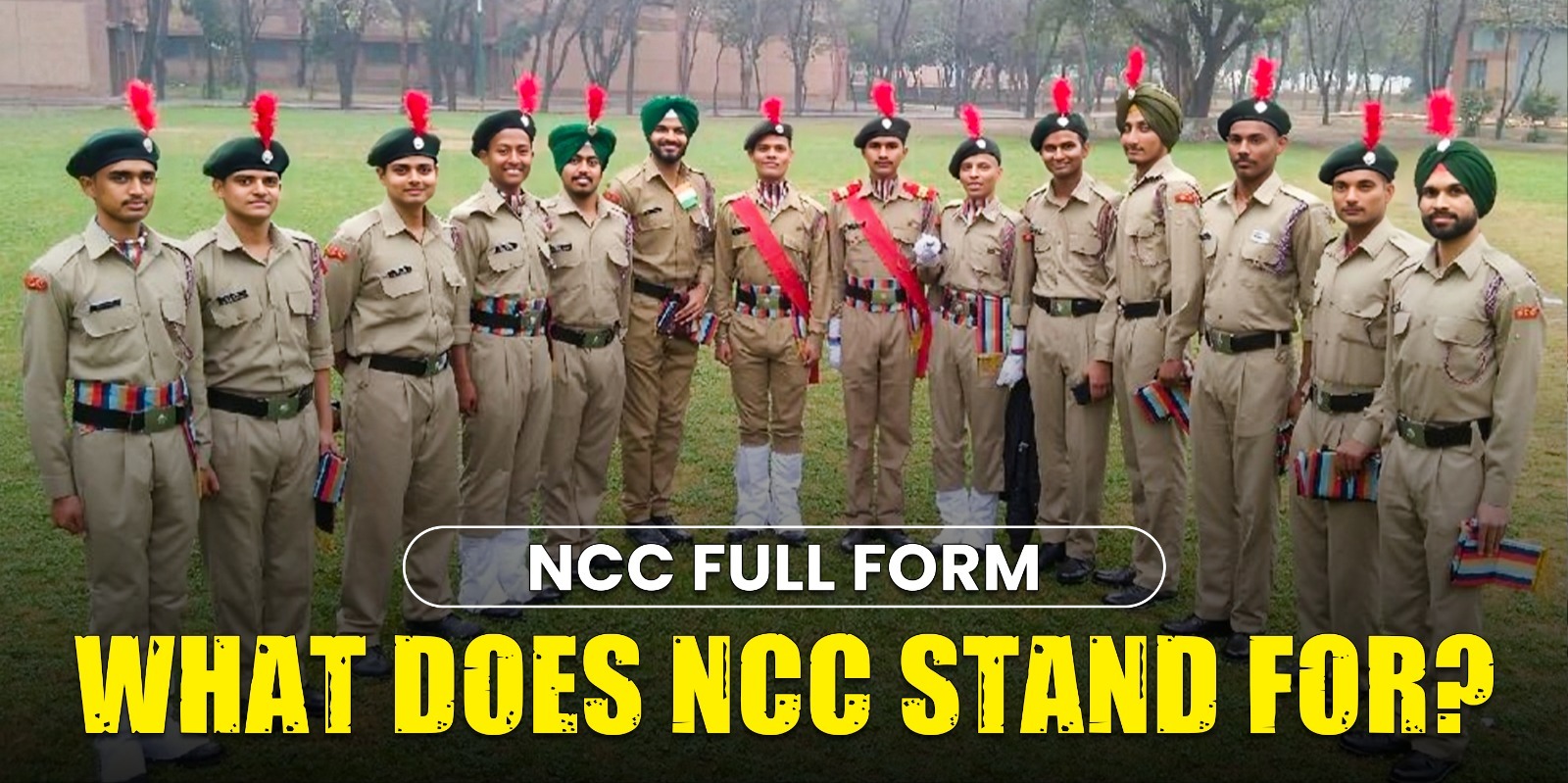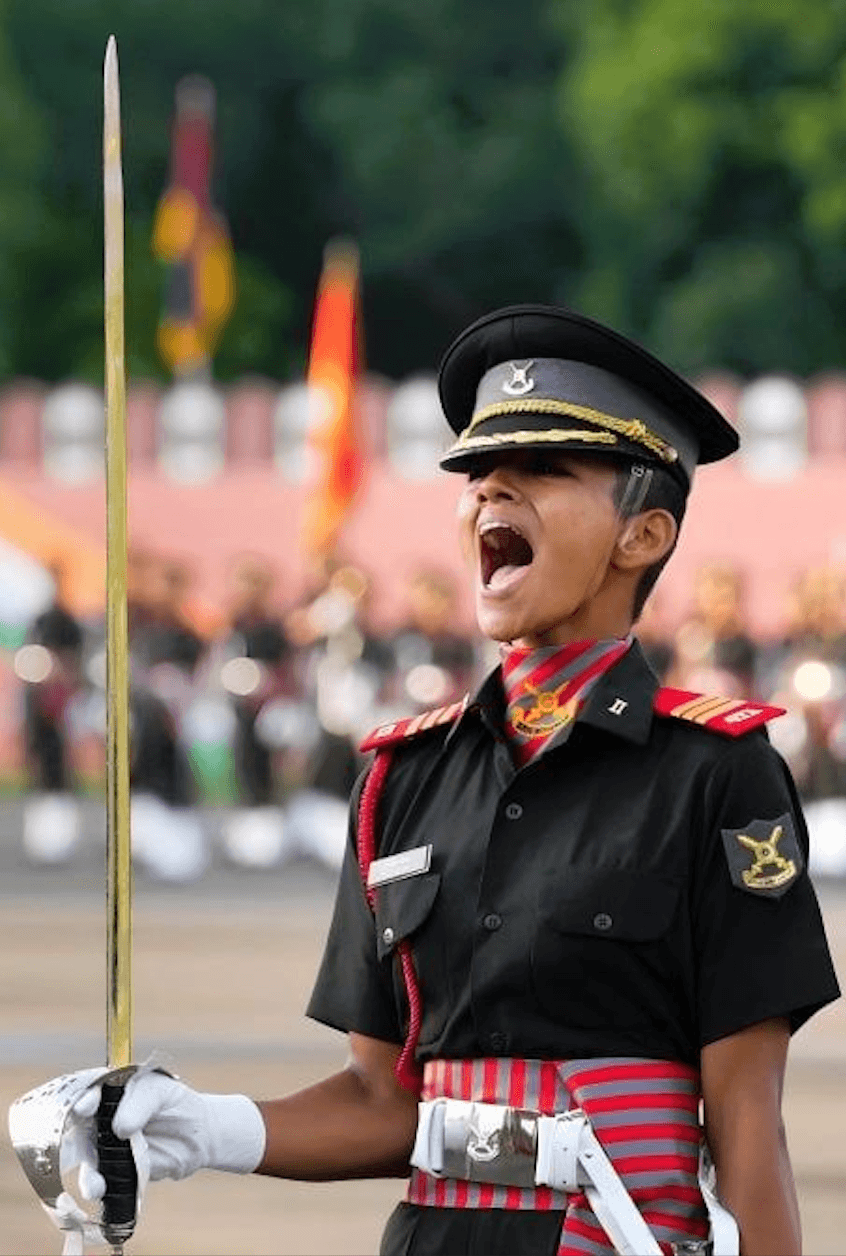If you are planning a career in the Armed Forces, you must have encountered the term NCC. But what is NCC? NCC stands for National Cadet Corps – India’s foremost youth organization developing leadership, discipline, and a sense of patriotism in students. It was formed under the NCC Act of 1948, and the main function of the organization is to train young citizens to become future leaders and to become officers in the Armed Forces.
At Trishul Defence Academy (TDA), we believe that the NCC is one of the best pathways for aspirants wishing to pursue a career in defence. We will now look at the history, motto, aim, training and why the NCC is important for the youth of today.
History of NCC
The period after independence is the starting point in the history of the NCC. On 16 July 1948, the NCC was officially raised under the NCC Act, following the recommendations of the Pandit H. N. Kunzru Committee.
Cadets from the NCC displayed their bravery during the wars of 1965 and 1971, both by assisting the Armed Forces in supply chains and in civil defence and rescue. Over the years the focus of the NCC has changed from purely military training to an all-round development programme that focuses on leadership, discipline and community service.
Motto of National Cadet Corps
The motto of National Cadet Corps is “Unity and Discipline.” This motto was adopted in 1980 and represents the spirit of NCC. Unity teaches cadets about teamwork and national integration, while discipline forms the foundation of a good career whether it is in the armed forces or in civil society.
The Aim of NCC
The Aim of NCC is simple but powerful:
- To develop character, discipline, and leadership qualities in young citizens.
- To promote the spirit of adventure, patriots, and secularism.
- To develop a pool of motivated and trained youth to contribute to national defence and development.
Today there are more than 13 lakh cadets in India, and it is one of the largest uniformed youth organisations in the world.
What is NCC and Its Importance?
So, what is NCC and its importance in real life? NCC is more than just drills or a uniform. It’s about providing life skills that assist in nurturing and developing a cadet’s future.
NCC helps you to:
- Develop leadership skills and self-esteem.
- Experience and exposure to adventure sports like trekking, mountaineering, and parasailing.
- Develop a spirit of community service work like blood donation, tree plantation, and social awareness rallies.
- Provide an opportunity for a job in Defence Services. Our cadets are preferred candidates for joining our Armed Forces.
National Cadet Corps Training & Life
Life as an NCC cadet is as challenging as it is rewarding.
NCC training consists of:
- Drill and weapon training.
- Map reading and field craft.
- adventure sports and camps.
- Community services project.
- Familiarisation with defence academy’s like IMA and OTA
This exposure allows cadets to maintain a disciplined lifestyle as it gives them every opportunity to join the Armed Forces.
Benefits of National Cadet Corps
The benefits of National Cadet Corps extend far beyond uniforms and parades:
- Job Opportunities: There are many reservation jobs in the Government and Private sectors for candidates with NCC certification.
- Scholarships & Quotas: some states also have honour rolls for cadets and other special concessions.
- Confidence & Leadership: Builds communication skills, Discipline, and Teamwork.
Which NCC Certificate is Best?
NCC introduces three certificate qualifications:
- A Certificate (for school cadets)
- B Certificate (in two years for college cadets)
- C Certificate (after completing interaction and B certificate qualifications).
The C certificate is the most relevant as it opens direct entry to the Indian Army, Navy, and Air Force through SSB interviews.
Conclusion
From its humble beginnings in 1948 to the enormous youth organisation that it has become, the National Cadet Corps continues to influence millions of students around the world. With its focus on discipline, service to the nation, and patriotism, the NCC continues to serve a very important role in modelling the leaders of tomorrow.
At Trishul Defence Academy (TDA) we prepare and encourage aspirants to get the best out of their NCC experience and prepare to take the next step into the Armed Forces.
FAQs
1. What is the NCC Full Form?
NCC stands for National Cadet Corps, which is India’s youth organization for the Armed Forces that imparts a sense of discipline, leadership, and patriotism to students.
2. Can NCC Cadets Join the Indian Army?
Yes, NCC cadets with a ‘C Certificate’ can apply directly for Officer Entry into the Indian Army, Navy, and Air Force.
3. Is NCC Worth It?
Yes, absolutely. NCC develops personality, discipline, and leadership, plus it helps cadets in defence examinations and civilian careers.
4. Are NCC Cadets Paid?
NCC cadets do not receive a basic salary, but cadets do receive allowances during camps, training, and special activities.
5. Is NCC Necessary for NDA?
No, NCC is not required for NDA. But if you have NCC background, that will add confidence and some desirability in the selection process.
6. How many years of NCC course & what opportunities does it provide?
Typically, the NCC course lasts for 3 years, separated into Junior (school) and Senior (college) divisions. Cadets train for 2-3 years, completing training camps, drills, and examinations. Cadets successfully receive NCC certificates (‘A’, ‘B’, or ‘C’) which help in careers in defense.

 Login/Register
Login/Register








